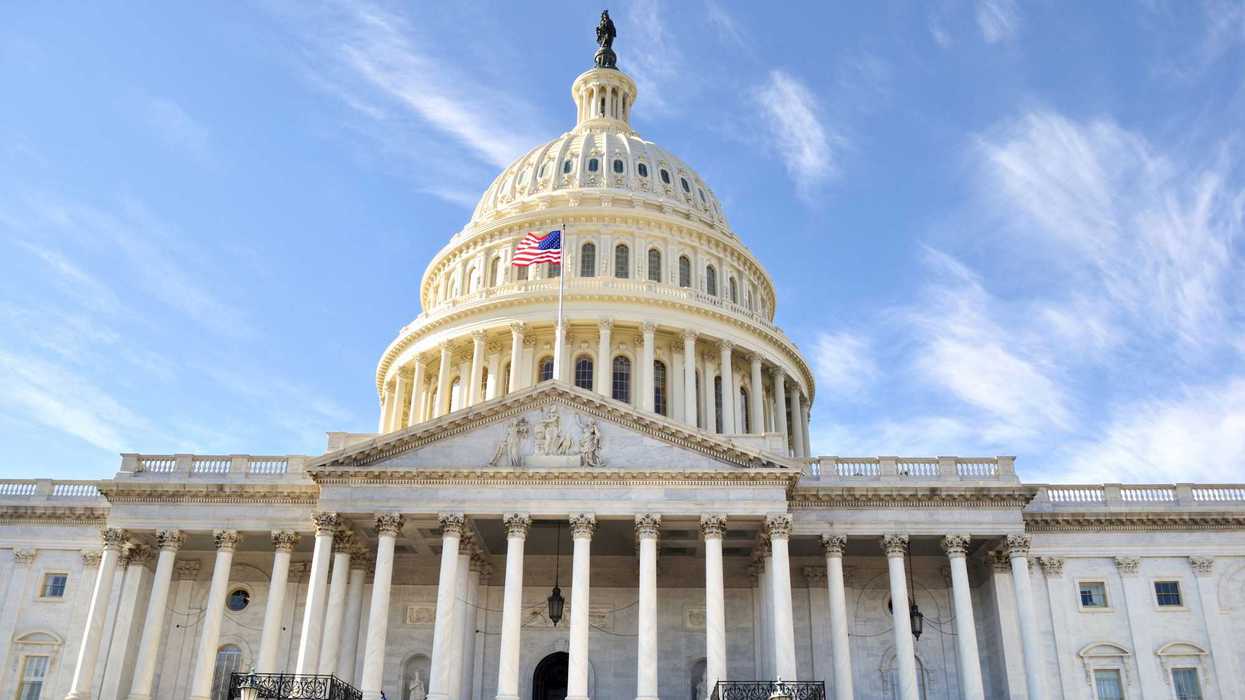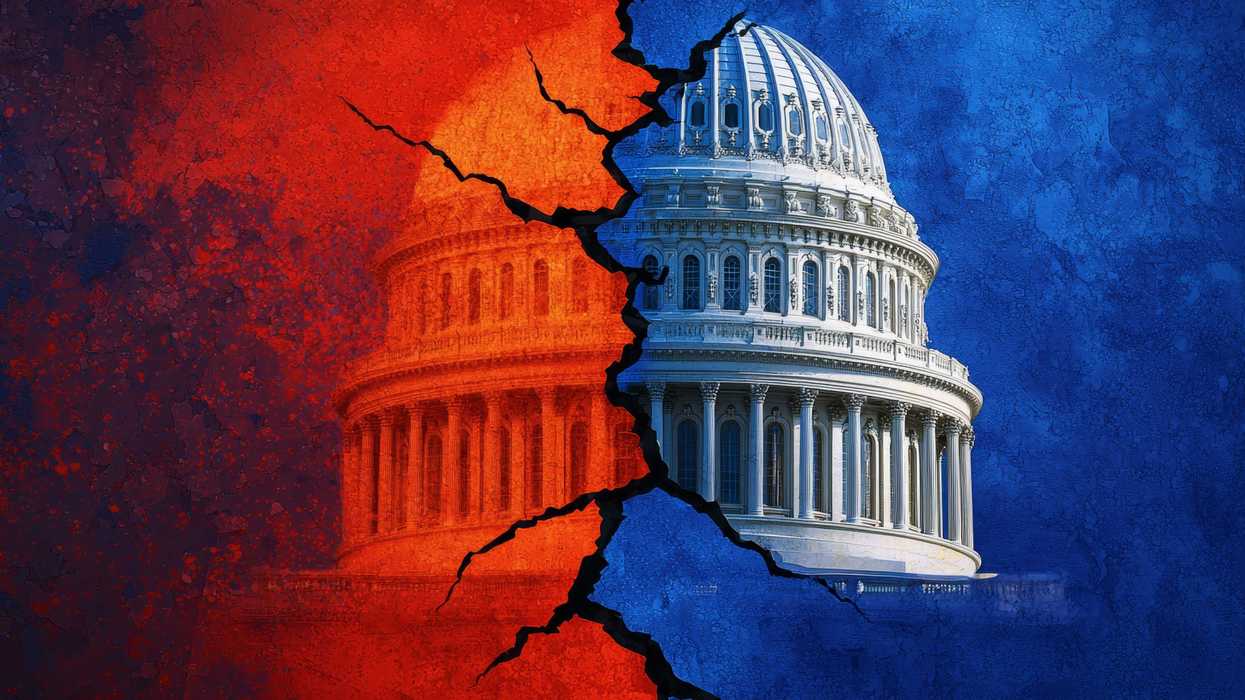The Fulcrum strives to approach news stories with an open mind and skepticism, striving to present our readers with a broad spectrum of viewpoints through diligent research and critical thinking. As best we can, we remove personal bias from our reporting and seek a variety of perspectives in both our news gathering and selection of opinion pieces. However, before our readers can analyze varying viewpoints, they must have the facts.
During his commencement speech at West Point on Saturday, May 24, Donald Trump stated that he rebuilt the military. He told the graduating cadets:
"I rebuilt that army, and I rebuilt the military. And we rebuilt it like nobody has ever rebuilt it before in my first term".
His speech also touched on military strength, national security, and his administration’s policies regarding diversity, equity, and inclusion in the armed forces.
Has the Trump Administration rebuilt the military as he claimed at West Point or just shifted priorities?
Trump claimed he rebuilt the military, but his administration's actions suggest more of a shift in priorities rather than a complete overhaul. His policies focused on streamlining defense spending and procurement, modernizing equipment, and prioritizing speed and flexibility in military operations. Additionally, he has emphasized reversing diversity, equity, and inclusion (DEI) programs in the armed forces.
Specifically, his administration cut certain Army programs while prioritizing long-range missiles and uncrewed aerial systems. Vice President JD Vance also outlined a strategic pivot toward avoiding prolonged conflicts and maintaining technological superiority rather than expanding military size.
Trump's military rebuild has led to a shift in U.S. defense strategies, focusing on restraint in the use of force and avoiding prolonged conflicts.
Trump also reversed diversity, equity, and inclusion (DEI) programs in the military, arguing that they were distractions from core defense missions. His administration fired senior military officers who supported DEI efforts and banned transgender individuals from serving. These changes have sparked debate over their long-term effects on military readiness and recruitment.
How have Trump's military priorities differed from previous presidents?
- Budget and Spending: Trump has emphasized increased military spending, with his administration proposing the first Pentagon budget exceeding $1 trillion. However, some critics argue that this budget does not add significant new funding but rather reallocates resources.
- Recruitment and Retention: Trump has touted record-breaking military recruitment, though data suggests enlistments were already rising before his reelection. His administration has focused on reviving military morale and recruitment reforms.
- Modernization and Equipment: His administration has prioritized long-range missiles and uncrewed aerial systems while cutting certain Army programs, such as the Improved Turbine Engine Program for Black Hawk helicopters.
- Social Policies: Trump has reversed diversity, equity, and inclusion (DEI) programs, reinstated the transgender military ban, and replaced senior officers who supported DEI efforts. These changes contrast with previous administrations that expanded inclusion policies.
- Military Strategy: Unlike previous presidents who focused on global military presence, Trump has emphasized avoiding prolonged conflicts and reducing overseas deployments. His administration has also pushed for NATO allies to take more responsibility for their own defense.
Since President Trump specifically referred to his first administration, what are the increases in the military budget over Obama?
President Trump increased the military budget compared to the later years of President Obama's administration. The total defense budgets under Trump from 2017 to 2020 amounted to $2.9 trillion (adjusted for inflation), which was higher than the $2.7 trillion spent in Obama's last four years. However, in Obama's first four years, the defense budget was nearly $3.3 trillion.
The increase under Trump was often highlighted in his speeches, where he claimed to have invested $2.5 trillion in military equipment. However, only 20% of that budget was actually spent on purchasing new equipment.
Are there any areas where the Trump administration has reduced military effectiveness or readiness?
There are some concerns that certain policies under President Trump may have impacted military effectiveness or readiness:
- Leadership Changes: Trump has removed several top military officials, including the Chairman of the Joint Chiefs of Staff, Gen. CQ Brown Jr., and Chief of Naval Operations Adm. Lisa Franchetti. Some experts argue that these firings could disrupt continuity and strategic planning within the military.
- Budget Adjustments: While Trump initially proposed increasing military spending, reports indicate that he briefly considered cutting Pentagon funding by up to 8% before walking back the proposal. Some analysts worry that shifting funds away from traditional defense programs toward missile defense and border security could impact overall readiness.
- Cultural & Policy Shifts: Trump has prioritized removing diversity, equity, and inclusion (DEI) initiatives from the military, arguing that they detract from combat effectiveness. Critics argue that reducing DEI programs could limit recruitment and retention, particularly among underrepresented groups.
What overall conclusion one should draw from the President's statement on May 24 that he rebuilt that army, and rebuilt the military, and "we rebuilt it like nobody has ever rebuilt it before in my first term"?
While Trump’s administration undeniably increased military funding and introduced new initiatives, critics argue that the military was already strong before his presidency. Some analysts suggest that his policy changes—such as removing DEI programs and shifting focus away from certain diplomatic efforts— could have mixed effects on overall military effectiveness.
David Nevins is co-publisher of The Fulcrum and co-founder and board chairman of the Bridge Alliance Education Fund.












 Mayor Ravi Bhalla. Photo courtesy of the City of Hoboken
Mayor Ravi Bhalla. Photo courtesy of the City of Hoboken Washington Street rain garden. Photo courtesy of the City of Hoboken
Washington Street rain garden. Photo courtesy of the City of Hoboken







